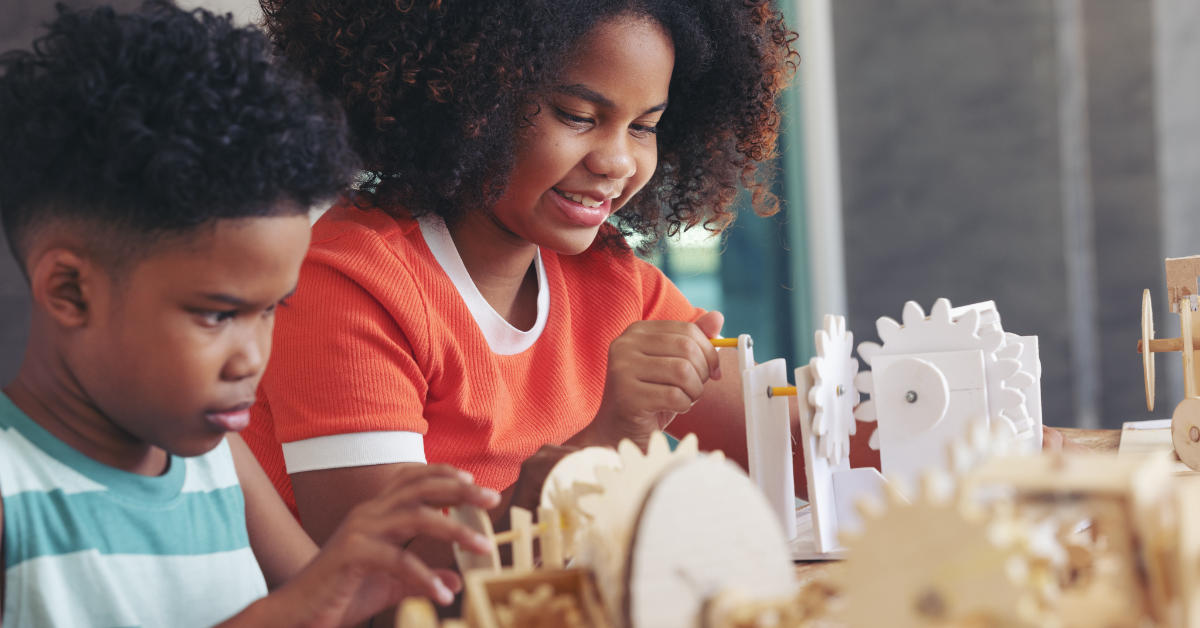
Genuine curiosity is the mother of all learning. Stirring curiosity makes our children successful students in the present and sets them up to be self-directed, lifelong learners. If you’re having trouble engaging your children in meaningful learning, curiosity is the key.
Why Curiosity Matters
Curiosity is an eager desire to know or learn something. It is a driving force behind exploratory behavior and acquiring knowledge. When children are curious, they are more likely to engage with the world around them, ask questions, and search for answers. This natural human curiosity can be nurtured and encouraged, leading to a life of learning and discovery.
I could spend hours reading and listening to podcasts about rock climbing, but you would have to strap me to a chair if you wanted me to learn about car mechanics. Why? Because I’m curious about rock climbing! It might be the opposite for you – and that’s great! We are all predisposed to be interested in different subjects and thus have different contributions to make to the world.
Tapping into Existing Interests
One of the keys to drawing out and engaging the curiosity of your child is to leverage their intrinsic motivation to explore and discover what they’re already interested in. You probably know what some of these subjects are; it could be creepy crawly bugs or trains and what makes them run; maybe it’s cooking and baking or Middle Eastern geography. Make a list of these subjects so that you can reference them and keep them at the forefront of your consciousness when planning lessons and activities with your child. For example, if a word problem on your child’s math page talks about combining apples, inject your child’s love of space exploration and change the problem to talk about the Curiosity rover.
In fact, let’s say that your student has an eager desire to learn everything about the Curiosity rover. You can capitalize on this interest by:
- Visiting a space center or museum with a Mars rover exhibit.
- Watch videos and documentaries about the Curiosity rover mission.
- Encourage children to build their own replica Curiosity rover models.
- Play Mars exploration-themed games and engage in imaginative play.
By incorporating their interest in the Curiosity rover into various activities, you can foster their curiosity and enhance their learning experience.
The Power of Perceptual Curiosity
Perceptual curiosity, or curiosity-driven by our senses, plays a vital role in a child’s development. It’s the innate drive to explore novel stimuli, an unusual sight, a strange object, or an unfamiliar sound. This type of curiosity encourages children to engage with the world around them, using their senses to gather information and make sense of their surroundings. By encouraging perceptual curiosity, we can foster a sense of wonder and discovery in children, setting them on a path of lifelong learning and an eager desire for exploration.
The Role of Human Curiosity in Learning
Curiosity plays an important role in learning by:
- Increasing motivation: When children are curious, they are more interested in learning and more likely to persist in challenging tasks.
- Improving memory: Curiosity enhances memory by making learning more meaningful and engaging.
- Promoting exploratory behavior: Curiosity encourages children to explore their environment, experiment, and discover new things.
- Developing problem-solving skills: Curiosity motivates children to search for answers and solutions, fostering critical thinking and problem-solving abilities.
Expanding Horizons
It’s also important to keep in mind that we can only be interested in things we’ve been exposed to. Perhaps your kids would love rock climbing, but if they’ve never been, it would be impossible to draw on this curiosity. Continually keep your eyes out for opportunities to expose your children to ideas and activities that are novel and align with your values. This achieves two important things. One, your children will gain more interests and hobbies during their childhood that you can draw on as you learn together, which expands the possibilities for how you can teach them. Your children also learn to see the world as full of possibility and adventure and will become more disposed to expand their horizons, even after they leave your nest.
But do be aware of yourself as you introduce your child to new things. Just because you think an idea is interesting doesn’t necessarily mean your child will – and that is okay! Give them the freedom to draw on their intuition, and they will naturally learn. Pushing and cajoling are often counterproductive.
Encourage Exploration
Some great, cost-effective ways to encourage exploratory behavior would be:
1. Visit a museum, zoo, or aquarium. Most of these institutions offer free or reduced-admission days, and some libraries even offer free passes that can be checked out by children and parents.
2. Go to the library! Once you have a list of your child’s interests, encourage them by finding engaging books or videos at their level.
3. BrainPop is a wonderful website with a variety of engaging, kid-geared videos on subjects ranging from famous scientists to Hispanic-American heritage to the art of debate. They offer some free videos and also a membership to access their full library.
4. Take advantage of kid-friendly search engines. I recommend Kids.gov, but you can find many more by doing a search of your own.
5. Go rock climbing. Ride a train. Dig up some bugs in the backyard. Travel somewhere, even if it’s just a couple of towns away. The best teacher will always be actual experience, so go out and do something fun with your child that gives them the opportunity to see in real life what they’ve been learning with you or through books and videos. It will be immensely powerful for your child and will motivate her to learn going forward.
Fostering an Eager Desire to Learn
By nurturing your child’s curiosity, you can instill a lifelong love of learning that will serve them well in all aspects of their life. Encourage them to ask questions, explore their interests, and embrace the joy of discovery. Remember, curiosity is not only essential for academic success but also for personal growth and fulfillment.
Additional Tips for Encouraging Curiosity
- Create a stimulating environment: Surround your children with books, games, and activities that spark their interest and imagination.
- Ask open-ended questions: Encourage your children to think critically and creatively by asking questions that don’t have a single right answer.
- Allow for exploration and discovery: Give your children the freedom to explore their curiosities and discover new things on their own.
- Be a role model: Show your own curiosity by asking questions, learning new things, and being open to new experiences.
Remember, curiosity is the key to unlocking a world of learning and discovery for your children. By nurturing their natural curiosity, you can kindle their eager desire to become passionate, engaged, and lifelong learners.
Happy exploring!




Leave a Reply